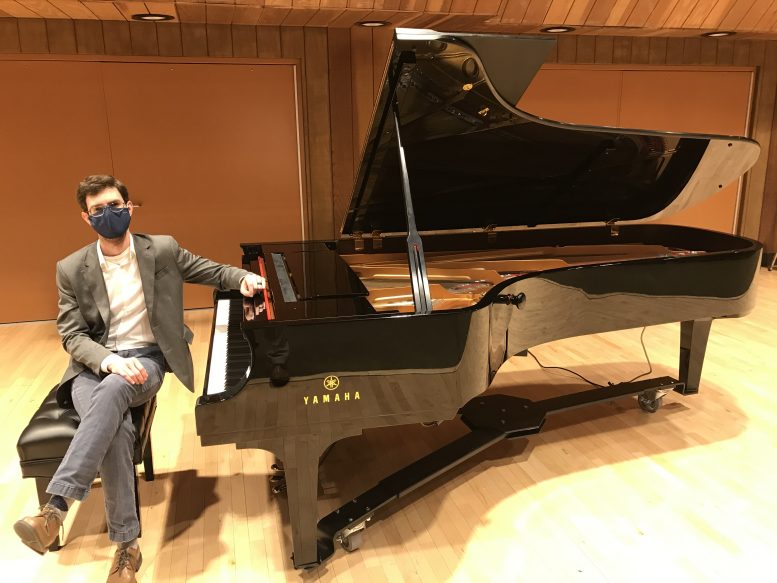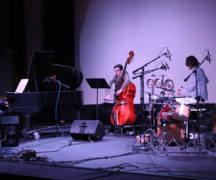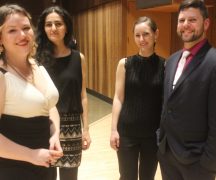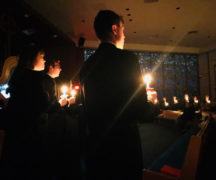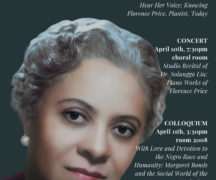By DAVID DUPONT
BG Independent News
The coronavirus caused a major disruption in the College of Musical Arts relationships with musicians in China and elsewhere abroad.
So, the college has invested in an instrument that brings the musical touch of pianists from thousands of miles away into Bryan Recital Hall.
Earlier this month, the college received delivery of a nine-foot Yamaha grand piano with Disklavier capabilities. Electronic sensors record the action of the piano’s keys, hammers, and pedals, the system saves the performances as a MIDI file, and electromechanical solenoids are used to play back the performance on the piano.
With a wi-fi connection it can play music being performed on a Disklavier enabled instrument anywhere in the world.
Yevgeny Yontov, a member of the piano faculty, said that he and his colleagues first looked at the technology in early 2019.
Yamaha showcased its keyboard instruments as part of tour of colleges and universities. They showed off everything from electronic pianos to acoustic grands, including the grand with the Disklavier capabilities.
They were impressed enough to use the grand on a piano gala featuring the piano faculty playing together on two pianos.
The piano strictly as piano was good. Still, they were uncertain about the need to the technology. Then the pandemic arrived and they had second thoughts. So earlier this year, piano faculty traveled to Cleveland to select an instrument.
Bill Mathis, dean of the college, said the technology offers a range of possibilities.
It can be used for auditions by prospective students who are unable to visit campus, or it can be used for a virtual master class.
This represents vast improvement over Zoom, said Yevgeny Yontov, of the piano faculty. Students applying are at a disadvantage if they have inferior internet connections or inadequate microphones.
And the subtleties of touch and color are lost in the virtual translation, which is essential for teaching.
Instead the Disklavier faithfully records the pianist’s playing. Because the technology is recording the pressure on the keys, not the sound, the data packets are much smaller, so the internet connection need not be of as high quality.
Closer to home the new grand will have uses. A pianist can record an accompaniment for a vocalist or instrumentalist to play along with. It can be used for lessons with the pianist playing a piece and then listening to what they have just played.
“It’s a very different sound experience when you play it back on speakers then when you have a living piano playing it,” Yontov said. “It’s a very different sound. You get to hear yourself in a much clearer way. They hear themselves from the hall not from the keyboard.”
That was evident the first day the piano was here, and piano students got a chance to do their lessons on it.
Yontov was pleased that the piano arrived in time for him to use it on his March 10 faculty recital. The instrument, he noted, was not just selected for its technology but also for its capabilities as a piano.
He was “very happy how it performed” during his recital. In the first half he performed music by Handel and Mozart. “It handled the lighter passages well. It had clarity and spark.”
In the second half he performed worked by the Russian composer Alexander Scriabin, and the piano had “all the colors” he needed.
During the dress rehearsal he used the Disklavier. He recorded his playing and then went into the hall to listen, noting he didn’t need to pedal as much.

